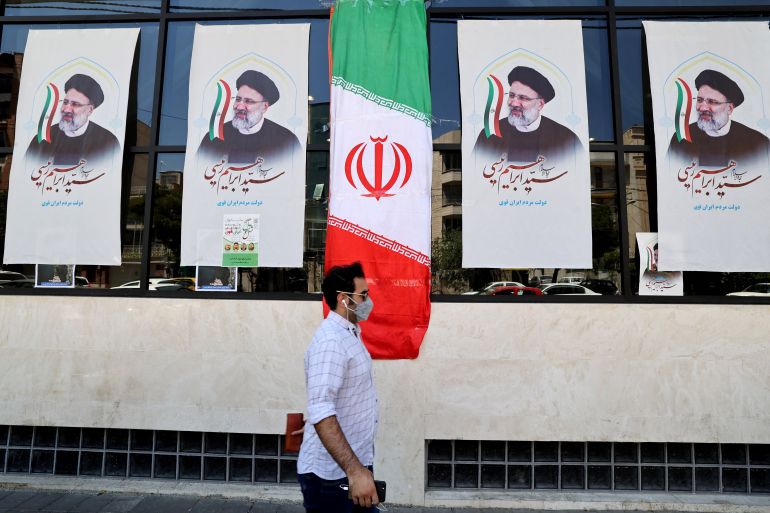Iran ‘carefully reviewing’ US response to nuclear deal proposal
Iran had sent a ‘reasonable’ response to the EU’s proposal to restore the nuclear deal last week, as negotiations continue.

Iran is studying the United States’ response to a European Union-drafted agreement that would restore the 2015 nuclear deal between Tehran and Western powers, Iran’s foreign ministry has said.
Iran had already given its own response to the EU proposal last week, which was described as “reasonable” by the EU’s foreign policy chief, Josef Borrell.
Keep reading
list of 4 itemsIs a return to the Iran nuclear deal imminent?
Iran blames ‘procrastinating’ US for nuclear deal delays
US says ‘encouraged’ by Iranian response to nuclear deal proposal
“This evening Iran received the US response through the European Union. The careful review of the response has started in Tehran,” Iranian foreign ministry spokesman Nasser Kanaani said on Wednesday.
“Iran will share its view with the EU, as the coordinator of the nuclear talks, upon completion of Tehran’s review.”
The foreign ministry did not give any further details on how close the sides are to finalising a deal.
In 2018, under former President Donald Trump, the US unilaterally withdrew from the nuclear deal, which sought to prevent Iran from acquiring nuclear weapons in return for the lifting of sanctions.
Indirect negotiations to restore the deal have ramped up in recent months, with EU officials shuttling between the two sides.
US State Department spokesperson Ned Price confirmed that Washington had responded to Tehran’s comments on the EU text. “Our review of those comments has now concluded. We have responded to the EU today,” Price said on Wednesday.
The new deal proposed by the EU to revive the 2015 nuclear deal, formally called the Joint Comprehensive Plan of Action (JCPOA), will be carried out in four phases over two 60-day periods, sources with knowledge of the proposed agreement told Al Jazeera Arabic.
According to the sources, the proposal stipulates that on the day after the agreement is signed, sanctions on 17 Iranian banks, as well as 150 economic institutions, will be lifted, releasing billions of dollars in frozen Iranian funds and oil exports.
In return, Tehran will immediately begin to reverse steps it has taken to advance its nuclear technology, which is now beyond the scope of what the United Nations nuclear watchdog, the International Atomic Energy Agency (IAEA) says is acceptable.
However, the EU proposal is said to not include Tehran’s demand that the US lift its “terrorism” designation of Iran’s Islamic Revolutionary Guards Corps.
Israel remains the biggest opponent of the nuclear deal, and is now increasingly alarmed at the apparent movement towards an agreement.
Israel’s defence minister Benny Gantz will travel to the US later this week for a series of meetings with officials to discuss the latest developments.
Israeli Prime Minister Yair Lapid on Wednesday urged Biden and Western powers to call off the deal with Iran, saying that negotiators are letting Tehran manipulate the talks.
“The countries of the West draw a red line, the Iranians ignore it, and the red line moves,” Lapid told reporters at a press conference in Jerusalem.
In March, indirect talks between Tehran and Washington in Vienna broke down after Iran asked the US to guarantee that no future president would exit the agreement.
The Biden administration is facing domestic political opposition towards restoring the deal from both Democrats and Republicans in the US Congress.
“I intend to systematically fight the implementation of this catastrophic deal, and will work with my colleagues to ensure that it is blocked and eventually reversed in January 2025,” said Republican Senator Ted Cruz of Texas.